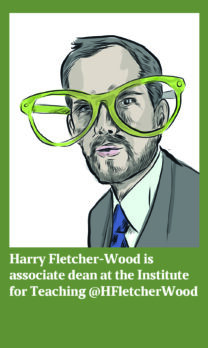Three posts on a theme
Drowning in the shallow: The Handshake
@ImSporticus
Anonymous blogger ImSporticus writes on the power of the handshake – beginning his meditation with a “planned act of unsportsmanlike conduct” on the part of a player from another school’s team, and the opposition coach’s response, a shrugged “boys will be boys”.
ImSporticus introduced the ritual of handshakes for practice and games alike: “My sessions start and end with a handshake, to show them I’m pleased to see them and to thank them for their continued commitment.” Match days begin and end with handshakes: “It’s also the last thing I do before they leave, telling them how much I enjoyed coaching them, refereeing them or watching them play.”
Students are expected to shake hands with the referee, the opposition coach and their own parents. And, of course, with the opposition “mainly because without the opposition’s cooperation they could not have the opportunity to play the game”.
What does an act of unsporting conduct mean? If “better people make better players, have we failed as youth sports coaches if all we teach them is the sport itself?”
Reading all the books: Hillbilly Elegy
@jo_facer
Jo Facer reviews Hillbilly Elegy, J.D. Vance’s story “of how he beat the odds of poor ‘white trash’ kids in the US and ‘got out’”. Facer discusses his experience in the Marines, which offered him discipline, and the support and challenge his grandmother provided.
“Fringe success stories are one thing,” Facer notes, “but how do we replicate that success for all children?” She identifies three features that she believes schools can provide: being a “reliable presence”, instilling discipline and pushing “kids harder”.
Facer intertwines Vance’s experience with her own, noting the disquieting questions that the book leaves her with: “Social mobility isn’t all positive; it’s also moving ‘away from something’. My mum certainly experienced that when she was at grammar school, and I felt something similar when I was the only cousin at a private school.”
The white flight of Derek Black
@elisaslow
This long read profiles the education of an unusual American. Derek Black was brought up a racist, the son of Don Black, creator of the internet’s first and largest “white nationalist” site. Black was seen as heir to the movement, speaking and broadcasting publicly from an early age.
He was home-schooled, but went to a liberal university to study medieval history. His identity was discovered in his second semester, and made public. So far, so unusual.
Derek Black was brought up a racist
Over the next few years, however, two powerful influences affected Black: inclusion within a community, and the study of history. Matthew Stevenson, one of Black’s peers and the sole orthodox Jew on campus, invited Black to join his weekly Sabbath dinners. Black began to attend — and to listen. His new friends began to challenge his ideas, sending him research into environmental causes of racial disparities in IQ and the effect of discrimination on job performance and mental health. He was exposed to similar disconcerting influences when his study of medieval history revealed the absence of a history of Western European genetic superiority and the impressive culture of medieval Islam.
Black renounced his beliefs publicly, concluding that: “I can’t support a movement that tells me I can’t be a friend to whomever I wish or that other people’s races require me to think of them in a certain way or be suspicious at their advancements. The things I have said, as well as my actions, have been harmful to people of colour, people of Jewish descent, activists striving for opportunity and fairness for all. I am sorry for the damage done.”
Black now enjoys rap music, liberal newspapers and Hollywood; he drinks tap water and travels extensively. He remains estranged from his family: while Derek believes, in his father’s words, that “family ties are separate from politics”, Don says that this can’t be true for a family “centred around political activism”.













Your thoughts